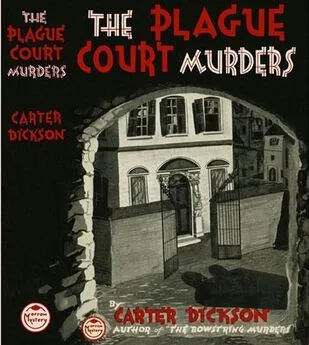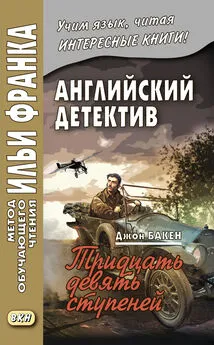John Blaine - The Boy Scouts In Russia
- Название:The Boy Scouts In Russia
- Автор:
- Жанр:
- Издательство:неизвестно
- Год:неизвестен
- ISBN:нет данных
- Рейтинг:
- Избранное:Добавить в избранное
-
Отзывы:
-
Ваша оценка:
John Blaine - The Boy Scouts In Russia краткое содержание
The Boy Scouts In Russia - читать онлайн бесплатно полную версию (весь текст целиком)
Интервал:
Закладка:
Fred agreed to all this. There was nothing else for him to do, for one thing, and, for another, he was by no means unwilling to see whatever there might be to be seen here. He could guess by this time that without any design he had stumbled on a spot that was reckoned rather important by the Germans, for the time being at least, and he had heard enough about the wonderful efficiency of the German army to be anxious to see that mighty machine in the act of getting ready to move.
He did see a good deal, as a matter of fact, that day and the next. It was on the famous Saturday night of the first of August that he had left Virballen. Sunday brought news of a clash with France, far away on the western border, and of the German invasion of Belgium. Monday brought word of a definite declaration of war between Germany and France, and of the growing danger that England, too, might be involved.
And all of Sunday and all of Monday supplies of all sorts poured through the little village in an unceasing stream. Motor cars and trucks were to be seen in abundance, and Fred caught his first glimpse, which was not to be his last, of the wonderful German field kitchens, in the mighty ovens of which huge loaves of bread were being baked even while the whole clumsy looking apparatus was on the move. But it only looked clumsy. Like everything else about the German army, this was a practical and efficient, well tried device.
Then suddenly, early on Tuesday, he was told that he was free to go, or would be by nightfall. And that day all signs of the German army, save a small force of Uhlans, vanished from the village. That evening, refreshed and ready for the road again, Fred set out. And that same evening, though he did not know it until the next day, England entered the war against Germany. CHAPTER III
A STRANGE MEETING
As he walked west Fred noticed, even in the night, a change in the country. It was not that he passed once in a while a solitary soldier guarding a culvert, as he neared a railway, or a patrol, with its twinkling fire, watching this spot or that that needed special guarding. That was part of war, the part of war that he had been able to foresee. It wasn't anything due to the war that made an impression on his mind so much as a sort of thickening of the country. Though he had traveled so short a distance from the Russian border, there seemed to be more people about.
Great houses, rising on high ground, with small, contented looking villages nestling, as it were, under their protection, were frequent. He was, as a matter of fact, in a country of great aristocratic landholders, the great nobles of Prussia, the men who are the real rulers of the country, under the Prussian King, who is also the German Kaiser. And in many of these great houses lights were burning, even after midnight, when all signs of life in the villages had ceased. The country was stirring, and there was more of it to stir. Now from time to time he heard the throbbing hum of an automobile motor. Only one or two of these passed him, going in either direction, on the road along which he was traveling. But there were parallel roads, and he could hear the throbbing motors on these, and often see the pointing shafts of light from their lights, searching out the road before them as they sped along.
Fred knew enough of Germany to understand something of what he saw and heard. It was from these great houses that a great many officers were contributed to the army. These young men had no real career before them from their birth, almost, except in the army. So it was easy to guess why the lights were burning in those mansions, and why there was anxiety among them, and why the throbbing motor cars were humming over the roads.
If Germany were beaten back in the beginning, if the task she had undertaken proved too heavy, this was the province that was sure to feel the first brunt of invasion. Behind him, to the east, Fred knew were the great masses of Russia, moving slowly, but with a terrible, always increasing force. No wonder these people were stirring, were sending out all their men to drive back the huge power that lay so near them, a constant menace!
But now, though he did not know it, Fred was approaching real danger for the first time. Many of the motors he saw and heard were going west. Though he could not guess it, they were carrying women and children away from the old houses that were too much exposed, too directly in the path of a possible invasion for the helpless ones to be left in them when the men had gone to fight. All Germany had to be defended. It happened to be the part of East Prussia to bear invasion, if it came to that.
And so the people of the great houses were making their migration. The men went to their regiments; the women to Berlin, and to the great fortresses that lay nearer than Berlin-Koenigsberg, Danzig, Thorn. This was historic country that Fred was traversing, the same country that had trembled beneath the thundering march of Napoleon's grand army more than a hundred years before, when the great Emperor had launched the mad adventure against Russia that had sealed his fate.
But he didn't think of these things, except of Napoleon, as he trudged along. Once more he traveled through the night. Once more, as the first signs of morning came, he began to feel tired, and, despite the food he had carried with him which he had stopped to eat about midnight, he was hungry. And, as had been the case on the night of his tramp from Virballen, the first rays of the rising sun showed him a village. It was in a hollow, and above it the ground rose sharply to a large house, evidently very old, built of a grey stone that had been weathered by the winds and rains of centuries. It was a very old house, and strangely out of tune, it seemed to Fred, with the country though not with the times. It was so old that it showed some traces of fortification, and Fred knew how long it was since private houses had been built with any view to defence. It was a survivor of the days when this whole region had been an outpost of civilization against hordes of barbarian invaders.
One curious thing he noticed at once about the great house. No flag was flying from it, though it boasted a sort of turret from which a flag might well have been flung out to the wind. All the other big houses he had seen had had flags out and the absence of a standard here seemed significant, somehow.
When he entered the village he found that there was no inn. He saw the usual notice of mobilization and the proclamation of war, but the people were not stirring yet. He had to wait for some time before he found a house where people were up. They looked at him curiously, but grudgingly consented to give him breakfast. There was an old man, and another who was younger, but crippled. And this cripple was the one who seemed most puzzled by Fred's appearance in the place. He surveyed him closely and twice Fred caught him whispering, evidently about him.
Then the cripple slipped away and came back, just as Fred was finishing his meal, with a pompous looking, superannuated policeman, recalled to duty since the younger men had all gone to war. This man asked many questions which Fred answered.
"You are American?" asked the policeman, finally. "You are sure you are not English?"
All at once the truth came over Fred. They thought he was English! Then England must have entered the war! They would think that he was an enemy, perhaps a spy! Yet, though he knew now the cause of the suspicious looks, the mutterings, he couldn't utter a word in his defence. He hadn't been formally accused of anything.
"Yes, I'm an American," he said, quietly. "I'm not English. I've no English blood in me."
He had intended to try to get a place to sleep in the village, but now he decided that it would be better to get away as soon as he could. If there had been soldiers about, or any really responsible police officials, he would not have been at all disturbed. But these people were nervous and ignorant; the best men of the place had gone, the ones most likely to have a good understanding. So he paid his little reckoning, and started to walk on.
They followed him as he started. As soon as he was in the open road again, a new idea came to him. Why not try the great house on the hill? There certainly someone would know the difference between an American and an Englishman. He was very tired. He knew that, even if he went on, he would have to stop at some village sooner or later. And if he was suspected here, he would be at the next place.
And so, trying to ignore the little crowd that was following him, he turned off and began climbing toward the mansion above the village.
It was like a signal. From behind him there rose a dull murmur. A lad not much older than himself raced up and stood threateningly in his path.
"If you are an American and honest, why are you going there?" asked this boy, a peasant, and rather stupid in his appearance.
"None of your business!" said Fred, aroused. He didn't think that the advice of his friend Lieutenant Ernst to answer questions covered this.
"You can't go there. There are spies enough there already!" cried the other.
And then without any warning, he lunged forward and tried to grapple with Fred.
That aroused all the primitive fight in Fred. He met the attack joyously for wrestling was something he understood very well. And in a moment he had pinned the peasant boy, strong as he was, to the earth.
But he had got rid of one opponent only to have a dozen others spring up. There was a throng about him as he shook himself free, a throng that closed in, shouting, cursing. For a moment things looked serious. Fred now understood these people thought he was a spy. And he could guess that it would go hard with him if he didn't get away. He forgot everything but that, and he fought hard and well to make good his escape. But they were too many for him. Try as he would, he couldn't get clear, although he put up a fight that must have been a tremendous surprise to his assailants. In the end, though, they got him down, with cries of triumph.
And then there came a sudden diversion from outside the mob. Down the road from the great house, shrieking a warning, came a flying motor car. Its siren sounded quick, angry blasts, and the mob, terrified, broke and scattered to get out of the way of the car. Fred, stupefied, didn't run. He had to jump quickly to one side to get out of the car's path. Then he saw that it was slowing down, and that it was driven by a boy of his own age. This boy leaned toward him.
"I'm going to turn and go back. Jump aboard as I come by-I won't be going very fast!" he cried.
Fred didn't stop to argue or to wonder why this stranger had come to his aid in such a sensational and timely fashion. Instead, he gathered himself together and, as the car swung about and passed him, leaped in. As he grasped the seat, the driver shot the car forward and it went roaring up the hill, pursued by a chorus of angry cries from the crowd, utterly balked of its prey.
"That was a close call for you!" said the driver, in German.
But something in his tone made Fred look at him sharply. And then part of the mystery was solved. For the driver was not a German at all, but plainly and unmistakably a Russian.
"Yes-but how-why-?"
"Wait! Don't talk now!" said the driver. "Wait till we're inside. We'll be all right there, and I've got a few questions I'd like to ask, too."
There was no more danger from the mob of villagers, however. The speed of the car, even on the steep grade, was too great to give pursuers on foot a chance, and so its driver was able, in a few moments, to drive it through great open gates into a huge courtyard.
"Now who are you?" he asked. "And why were those people attacking you?"
Читать дальшеИнтервал:
Закладка:










